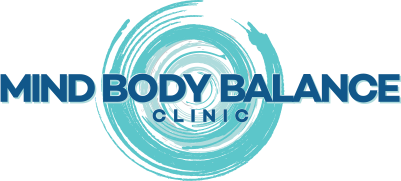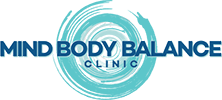
What’s Causing Your Headache? 7 Common Triggers You Need to Know
Headaches are one of the most common ailments, affecting millions of people every day. Whether it’s a dull, nagging sensation or a pounding pain that disrupts your routine, headaches can quickly throw your day off track. The surprising thing? Many headaches can be linked to underlying issues that are often overlooked.
If you’ve tried painkillers, adjusted your posture, or even switched to decaf without relief, it’s time to dig deeper into what might actually be causing your pain. This guide will explore seven common—but frequently ignored—triggers of headaches, how to identify them, and actionable solutions to prevent them.
- Dehydration
Why it Happens:
Your body is about 60% water, and every system relies on adequate hydration to function properly. Even mild dehydration can cause a drop in blood volume, reducing the flow of oxygen-rich blood to your brain. This reduction can trigger headaches that often feel dull or throbbing.
What to Watch For:
- Dry mouth and lips
- Dark-colored urine
- Feeling dizzy or fatigued
How to Prevent It:
Stay ahead of dehydration by sipping water consistently throughout the day. A good rule of thumb is to aim for about 8–10 cups of water daily, though active individuals or those in hot climates may need more. If you struggle with remembering, keep a refillable water bottle close by as a gentle reminder.
- Low Blood Sugar
Why it Happens:
Your brain depends on glucose (sugar) for fuel. When your blood sugar drops—whether from skipping meals, intense workouts, or restrictive diets—it can leave your brain short on energy, triggering a headache.
What to Watch For:
- Sudden dizziness
- Irritability or mood swings
- Feeling shaky
How to Prevent It:
Avoid long gaps between meals. Incorporate balanced snacks with complex carbohydrates, healthy fats, and proteins to provide a steady energy release. For office workers, easy options like nuts, yogurt, or a banana with almond butter make excellent on-the-go snacks.
- Hypothyroidism
Why it Happens:
If you have an underactive thyroid (hypothyroidism), you may experience headaches due to hormonal imbalances that affect pain perception and nerve function. People with this condition often have impaired metabolism, which can further contribute to headaches.
What to Watch For:
- Fatigue and sluggishness
- Sensitivity to cold temperatures
- Unusual weight gain
How to Address It:
If you suspect hypothyroidism, consult your doctor for a proper diagnosis and blood tests to check hormone levels. Treatment typically involves thyroid hormone replacement therapy, which, when managed properly, can help alleviate headaches caused by this condition.
- Muscle Tension
Why it Happens:
Long hours hunched over a desk, poor posture, or stress can strain the muscles in your neck, shoulders, and scalp. Known as tension headaches, these often feel like a tight band squeezing your head.
What to Watch For:
- Pain that starts at the back of the head and moves forward
- Tenderness in the shoulders or neck
- Increased discomfort after long periods of sitting
How to Relax Those Muscles:
- Stretch Regularly: Incorporate quick stretches every hour to release tension in your neck and shoulders.
- Ergonomic Adjustments: Ensure your desk and chair are set up to support proper posture. Your monitor should be eye-level, and your feet should rest flat on the floor.
- Professional Help: Chiropractors and massage therapists can help loosen chronic tension, reducing headache frequency.
- Hypertension
Why it Happens:
High blood pressure (hypertension) can lead to headaches, especially if it spikes suddenly. Typically, hypertension-related headaches are a sign of dangerously high blood pressure, which may require immediate medical attention.
What to Watch For:
- A throbbing sensation, often at the back of the head
- Blurred vision
- Shortness of breath
What to Do:
Keeping your blood pressure in check is essential. Monitor it regularly and adopt a heart-healthy lifestyle, including reducing your sodium intake, exercising regularly, and managing stress. If necessary, consult a healthcare provider for medication.
- Food Sensitivity
Why it Happens:
Certain foods can trigger headaches in sensitive individuals due to the presence of specific compounds or allergens. Common culprits include aged cheeses (rich in tyramine), caffeine, chocolate, and processed meats containing nitrates.
What to Watch For:
- Headaches shortly after consuming specific foods
- Other symptoms like bloating, rashes, or digestive upset
How to Manage It:
Consider keeping a food diary to identify patterns and triggers. Once you have pinpointed the culprit, eliminate it from your diet. If the problem persists, a nutritionist or allergist can help guide you.
- Gut Imbalances
Why it Happens:
An unexpected contributor to headaches is your gut health. Bacterial overgrowths or infections in the gut can lead to inflammation, which doesn’t just stop at your digestive system. That inflammation can extend to your nervous system, causing headaches.
What to Watch For:
- Frequent bloating or indigestion
- Irregular bowel movements
- Feeling foggy or fatigued alongside headaches
How to Restore Gut Health:
- Incorporate probiotics (like yogurt or supplements) into your routine.
- Reduce processed and sugary foods in favor of whole, fiber-rich options.
- Seek medical advice if symptoms persist to rule out conditions like SIBO (small intestinal bacterial overgrowth).
How a Chiropractor Can Help with Headaches
If you’ve addressed the above causes and your headaches persist, it may be time to consider seeing a chiropractor. Chiropractors specialize in alleviating tension, improving posture, and restoring function through spinal adjustments. These benefits can directly or indirectly reduce headache triggers such as muscle tension, nerve compression, and even poor circulation.
Chiropractors can also work with you to develop personalized strategies for headache prevention, from ergonomic tips to exercises tailored to your needs.
Take Control of Your Headaches
Identifying the root cause of your headaches is the first step toward relief. By hydrating, fueling your brain, managing your diet, and tackling muscle or hormonal imbalances, you can reduce or even prevent your pain naturally.
Feeling stuck or overwhelmed? A consult with Dr. Quintana might provide the guidance you need to resolve stubborn headaches and reclaim your comfort.
Say goodbye to recurring headaches—your well-being is worth it.
GENERAL ENQUIRIES
OFFICE HOURS
| Monday | Closed |
| Tuesday | 9am – 6pm |
| Wednesday | Closed |
| Thursday | 9am – 6pm |
| Friday | 9am – 1pm |
| Saturday | 9am – 1pm |
Social Media Outlets
Request Appointment
Please fill out the form below.


